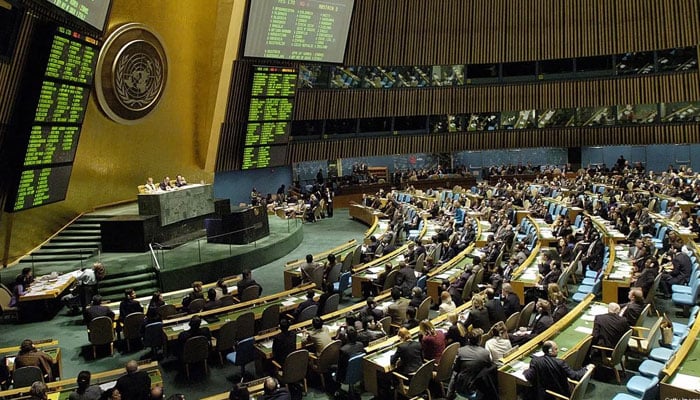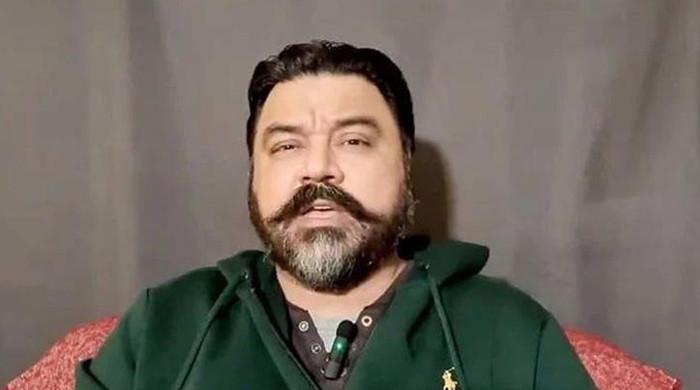UN reiterates support for Pakistan, seeks more funds to fight climate change
Antonio Guterres says he is working with Pakistan to organize a high-level donors conference
October 08, 2022

- UNGA passes resoultion seeking more funds to fight climate change.
- 193-strong body passes resolution with consensus.
- UN chief says he is working with Pakistan to organise a high-level donors conference.
UNITED NATIONS: United Nations General Assembly passed a resolution Friday calling for developing nations to receive more funding to combat climate change. The resolution also showed support for Pakistan, whose third of the country is underwater as a result of unprecedented monsoon rains.
The resolution, passed by the 193-member body with consensus, said that better access to international climate financing is important in helping developing countries mitigate and adapt to climate change, particularly those that are most vulnerable.
Rich countries' unkept promise to provide $100 billion a year in climate change financing starting in 2020 is a recurring sticking point in international talks on global warming.
So is a call from developing countries for a fund specifically designed to compensate for loss and damage they have already suffered due to global warming.
In a speech to the General Assembly, Secretary General Antonio Guterres said UN climate talks known as COP27 opening in Egypt in November "must be the place for serious action on loss and damage."
"COP27 must be the place for clarity on vital funding for adaptation and resilience," Guterres said.
Developing countries are the least responsible for climate change but the ones who suffer the most because of it. They are demanding what is known as climate justice.
Such is the case with Pakistan, where flooding has claimed some 1,700 lives, destroyed or damaged two million homes and left a third of the country submerged in fetid, stagnant water.
Addressing this calamity, the assembly called on the international community to boost humanitarian assistance for the rehabilitation of Pakistan's flood affectees.
Guterres said he is working with the government of Pakistan to organize a high-level donors conference.
"For so many with so little, the effects of these floods will be felt not just for days or even months," he said, adding that this disaster is just a taste of what is to come with global warming.
"Climate chaos is knocking on everyone´s door, right now," said Guterres.











